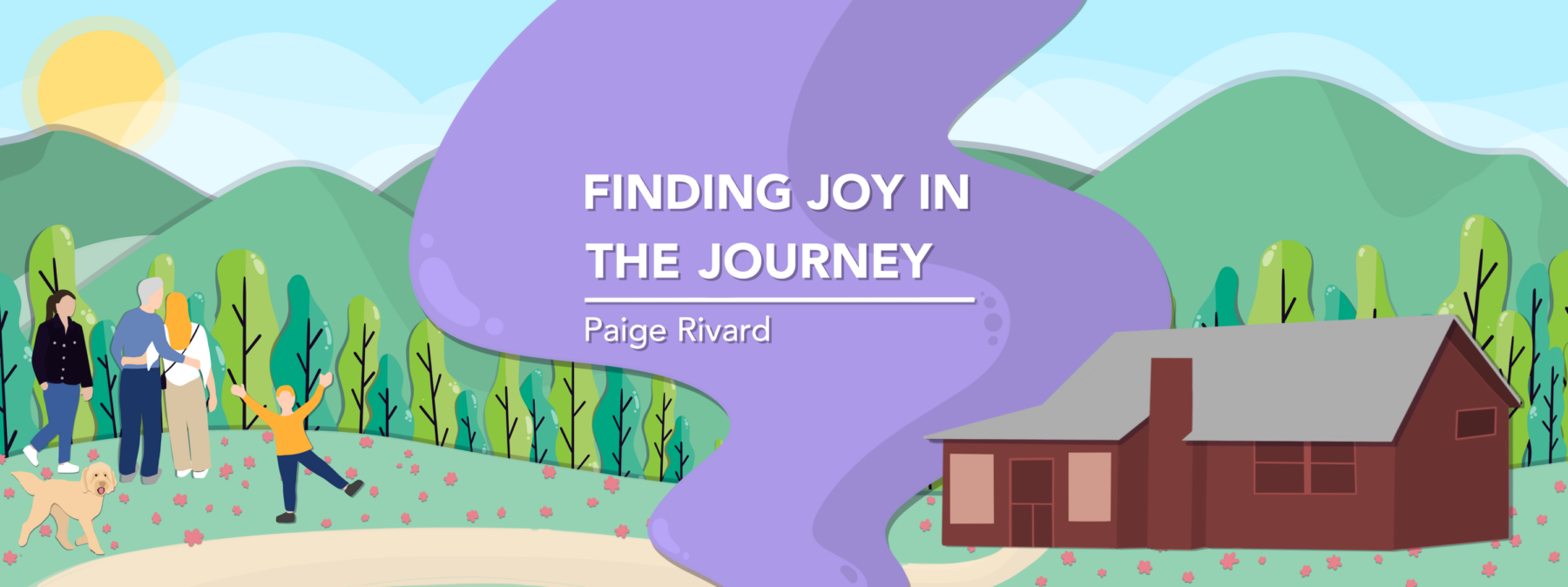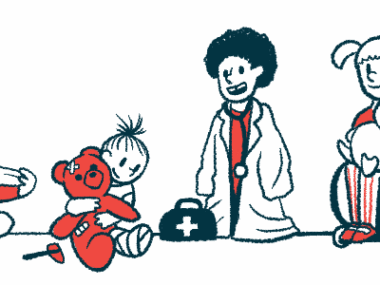Navigating the peaks and valleys of life with Prader-Willi syndrome
From homecoming to the hospital in the span of two weeks
Written by |

The past two weeks could be described as a master class in emotional whiplash — a wild ride that would leave even the most stoic parent reaching for the breath mints and tissues. Last month, I wrote about riding the emotional roller coaster of Prader-Willi syndrome (PWS), and this month proves we are on that ride.
Raising our 15-year-old son, Jake, who lives with PWS, delivers highs and lows in sharp contrast. It’s like our life is painted in bold neon streaks, rather than soft watercolor washes.
The peak
It started with a text message — a simple, world-changing ping. Jake, who has approached teenage milestones at his own pace, received an invitation to homecoming. To say he was excited doesn’t do justice to the light that radiated from his face.
He was excited to pick out a bow tie to match his date’s dress and go shopping for new shoes, a shirt, and even cologne. He practiced his smile for photos (even though it’s usually crooked and awkward), worked on manners such as opening the car door, and practiced signing the dinner check. These were gentle reminders of how we continue to foster his independence.
For parents of children with PWS, every social victory is monumental. Invitations aren’t guaranteed, and friendships can often be elusive. But on homecoming night, Jake was just another teenager, posing for selfies and laughing. Later, when he returned home with a tired but happy smile before 10 p.m., he recounted the evening joyfully.
The valley
Seven days later, joy turned to worry. What had started as mild discomfort for Jake snowballed into the severe pain of constipation — one of the most common gastrointestinal symptoms among those with PWS, and one very familiar to many families in our community.
Cue the decision tree every PWS parent becomes intimately acquainted with: Do we go to urgent care? The emergency room? Try at-home remedies?
After one ER visit, and no relief, we were admitted to the hospital. The diagnosis: severe constipation — a valley so deep and common in life with PWS that it feels like an unwelcome reunion with an old adversary.
By this time, Jake had already missed three days of school, which was inopportune timing, as it was the end of his first quarter (not that there’s ever a good time). Assignments were due. My son’s anxiety kicked into high gear as he worried about the work he hadn’t turned in and the tests he was missing. It felt like the start of an EF5 tornado.
There’s something so cruel about having your heart soar one week, only for it to plummet the next. Hospital rooms can feel chilly in October, filled with the scent of antiseptic and the beeping of machines. My son’s cheeks seemed deflated compared with a week earlier.
But what hospital stays strip away in normalcy, they often return in perspective. I found humor where I could: overhearing my son attempt to negotiate with the nurse that Gatorade should be allowed as a breakfast food, or quietly competing with myself to see how many times I could open the bathroom door for him without activating the hand sanitizer dispenser. Sometimes you have to laugh or you risk losing yourself entirely.
Lessons in gratitude
Raising a child with PWS is about finding balance: accepting joy without bracing for disaster (I’m still learning this), sitting with heartbreak without surrendering hope. Social milestones like homecoming still feel miraculous. Health setbacks remind us why the victories are so precious.
This emotional oscillation is exhausting, but it’s taught our family to savor every celebration, no matter how small. The peaks feel brighter for their rarity; the valleys feel a bit less lonely when we know other PWS families walk them as well.
As I reflect on the past two weeks, I’m still grateful. Grateful for the friends who included my son. Grateful for teachers who reached out to let us know test dates and assignments would be extended, and for tutors who offered to help with homework when I was too exhausted to look at Jake’s iPad one more time. Grateful for the day he finally started feeling better and his caring, loving personality resurfaced. (There’s that sunshine that warms my heart!) And above all, grateful for a son who meets every peak and valley with a resilience that could teach a gymnasium of teenagers how to dance through life.
If raising a child with PWS means living in extremes, then so be it. These moments, both joyful and challenging, stitch together into a tapestry rich with unexpected beauty. The peaks keep us hoping and the valleys keep us holding each other tight.
Note: Prader-Willi Syndrome News is strictly a news and information website about the disease. It does not provide medical advice, diagnosis, or treatment. This content is not intended to be a substitute for professional medical advice, diagnosis, or treatment. Always seek the advice of your physician or other qualified health provider with any questions you may have regarding a medical condition. Never disregard professional medical advice or delay in seeking it because of something you have read on this website. The opinions expressed in this column are not those of Prader-Willi Syndrome News or its parent company, Bionews, and are intended to spark discussion about issues pertaining to Prader-Willi syndrome.







J
As a parent of a 14-year-old with PWS, the roller coaster resonates. Thank you for sharing.
Blandine
C’est exactement ce que vous décrivez… des hauts où tout semble merveilleux et souvent des bas ou l’on se noie facilement.
Nous vivons à l’île de la Réunion et la maladie est mal comprise…même en milieu hospitalier.
Comment cela se passe aux USA ? Y a t’il plusieurs services spécialisés ? Dans chaque état ? Comment réagissent les professionnels de santé ?
Merci de vos informations ! Combien de places en institution ?
C’est très intéressant et important l’accès aux newsletters et aux témoignages.
Blandine maman de Maryam 26 ans ( à la maison)
Paige Rivard
Hi, Blandine - thank you for taking time to read my article! I'm glad you can relate and understand this journey we are on. We do have specialists in the United States who are well-versed in Prader-Willi syndrome, but not in every state so treatment or getting answers can still be difficult at times. Wishing you and your family the best!
Lenora Walters
Thank you for sharing this! I remember spending days and weeks in the hospital with my daughter who lives with Prader-Willi Syndrome. This article helped me realize how much stress and anxiety I have lived with raising my now 34 year old daughter. We Moms are superheroes for our children! But we also need be be superheroes for ourselves!
Paige Rivard
Lenora, thank you for taking time to read my article and sharing your comments. Wishing you and your daughter the best!
Janet Ragan
I have a 37 year old daughter with PWS and a touch of the autism spectrum. Her teenage years seemed to be mostly a deep valley. Outbursts were almost daily. Skin picking escalated, food seeking became worse and we added diabetes to the mix. There was no deviating from the routine. Looking back I’m not sure how we made it through those years. Behaviors leveled out in her 20’s and 30’s. She is on medication which helps with those behaviors so very thankful for that. She is basically a pretty happy adult now. She is working at a vocational rehabilitation center and she loves it. We still have food seeking and skin picking and we still deal with the diabetes but overall things are pretty good. She’s at a healthy 127 lbs. Wishing the best for you and your son
Paige Rivard
Janet - thank you for taking the time to read my column and for sharing your comments about your daughter and your journey. It sounds like she is doing well now and you have worked hard to get to this point. Wishing you and your family the best!